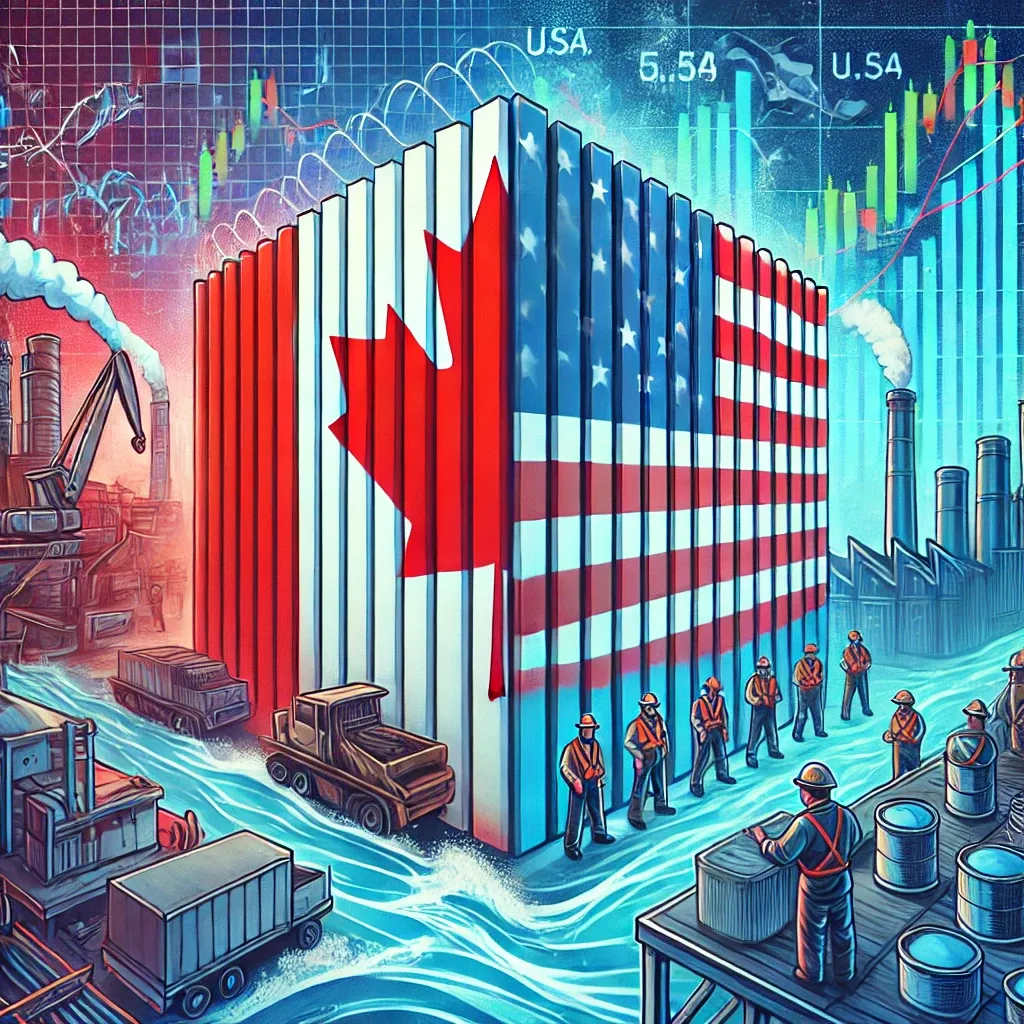
Vancouver, BC - March 27, 2025 - The upcoming April 28 federal election comes at a pivotal time for Canada, as economic and political uncertainty weigh heavily on businesses and consumers alike. One of the most pressing concerns are the U.S. tariffs imposed by former President Donald Trump, particularly on Canadian steel, aluminum, and potentially autos.
While these trade restrictions have already led to job losses and rising costs, they are just one of many issues shaping voter sentiment. Inflation, housing affordability, healthcare reform, immigration and crime remain at the forefront, making this election a decisive moment for the nation’s economic future.
The Impact of U.S. Tariffs on Canada’s Economy
Trump’s trade policies have disrupted Canadian industries, particularly in manufacturing and exports. With reciprocal tariffs expanding on April 2—including a 25% levy on auto imports—businesses face increasing pressure to diversify trade relationships. Both Liberal leader Mark Carney and Conservative leader Pierre Poilievre have pledged to resist U.S. economic foreign policy changes while pursuing strategies to strengthen Canada’s global trade position. However, the long-term solution requires a shift away from over-dependence on the U.S. market, no matter who wins the election.
Domestic Challenges Take Center Stage
Despite the significance of trade tensions, Canadian voters are also focused on internal economic challenges. Carney is distancing himself from Justin Trudeau’s progressive policies by promoting fiscal discipline and targeted investments, while Poilievre emphasizes infrastructure growth and deregulation. Both leaders aim to restore economic stability, yet their approaches differ, offering voters distinct choices for the country’s financial future.
A Critical Election for Canada’s Economic Resilience
While U.S. tariffs contribute to uncertainty, they are just one factor in a broader discussion about Canada’s economic sovereignty. The election ultimately serves as a referendum on leadership, policies, and the direction Canada should take moving forward.
Small businesses in Canada are especially facing significant challenges in 2025:
- Declining investment: A report from the Canadian Federation of Independent Business (CFIB) found that 32% of Canadian small businesses expect their capital investments to decrease over the next two years.
- Employment decline: The Intuit QuickBooks Small Business Index Annual Report revealed that Canadian small business employment has declined by 84,100 jobs since its peak in July 2024.
- Trade war impacts: Four in five small businesses are facing disruptions due to the Canada-U.S. trade war, and 90% are struggling with business planning.
- Accumulated debt: As of 2021, 70% of Canadian small businesses took on debt due to COVID-19, with an average debt of $158,128 per business. This continues to impact financial health and ability to invest in growth.
- Reduced consumer spending: Consumer behaviour changed during the pandemic, with many people delaying discretionary purchases.
- Shift to digital operations: Small businesses that haven't fully adapted to the new digital landscape may still be struggling to compete.
- Supply chain disruptions: Supply chain issues that began during the pandemic may still be affecting some small businesses.
- Uneven recovery: The pandemic's impact was not uniform across sectors, and some industries may still be lagging in their recovery
- Labour market changes: The job market underwent significant shifts during the pandemic, and some small businesses may still be facing challenges in finding and retaining skilled workers.
- COVID-19 loan repayment: The government did not extend the January 18, 2024 deadline for repaying Canada Emergency Business Account (CEBA) loans last year, despite calls for flexibility and also increased carbon taxes.
Read more about this on WBN News, where we explore local issues from a business perspective—especially small business entrepreneurs navigating a challenging economic climate after nine years of declining support in Canada.
#Canada Economy #Trade Tensions #US Tariffs #Small Business Canada #Economic Resilience #Federal Election 2025 #Canadian Business #Global Trade #Elke Porter
Connect with Elke at Westcoast German Media or on LinkedIn: Elke Porter or contact her on WhatsApp: +1 604 828 8788
